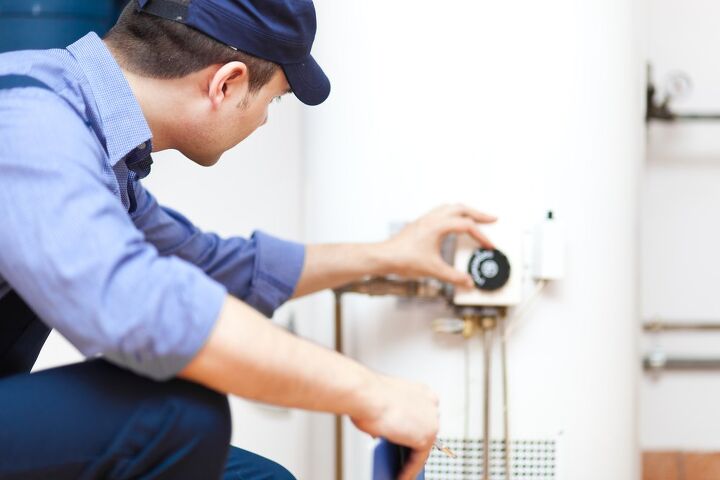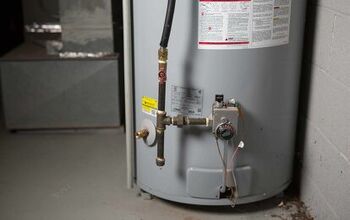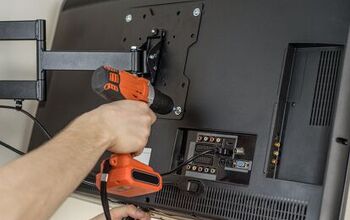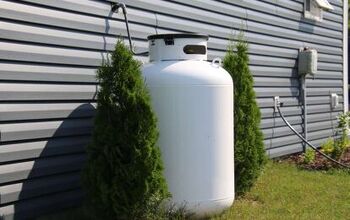6 Year Vs. 12 Year Water Heater Warranty: What's The Difference?

Should you find the need to replace your old water heater, there are more than a few options to choose from. There isn’t a straightforward answer about which model is the best and why. It comes down to budget, water usage, and other factors.
If you can, have a professional on your side to decide what kind of water heater that you need. For instance, what type of water heater warranty do you go with? The difference in warranty length has to do with an anode rod. The difference between the two comes down to cost and corrosion resistance. If you want to save money, the 6-year warranty is fine. For better corrosion resistance and longevity, the 12-year water heater is better.
Do You Need Water Heater Repair Services?
Get free, zero-commitment quotes from pro contractors near you.

6 Year and 12 Year Water Heaters are About Warranty
When you hear the term “6-year water heater”, that refers to the length of the warranty. It might seem obvious to go with the longer warranty, but there are two factors that play a role in that warranty length. Those are cost and corrosion resistance.
Simply put a 12-year water heater will likely cost quite a bit more than a 6-year warranty. That is because they are built to last longer, made from more durable materials. That is not to say that a 6-year water heater can’t last past the 6 year mark, but the warranty falls off after that time.
It also comes down to corrosion resistance, which we will cover at length in the next section. A 12-year warranty will be able to hold up better in the face of corrosion than a 6-year water heater.
The Anode Rod
The biggest difference between a 6-year and 12-year water heater is the anode rod. The anode rod in a water heater is the steel core wire that has a different metal wrapped around it. That metal is either aluminum, zinc, or magnesium.
The anode rod is to prevent corrosion, which can impact the other components within the water heater. You can think of it as basically “sacrificing” itself to that corrosion. The anode rod draws those corrosive effects to it instead of the other components of your water heater.
When the anode rod corrodes completely, the corrosion then begins to work its way through the rest of the tank. With proper maintenance, you can extend the life of your water heater, but you reasonably can expect your water heater to begin wearing down at an accelerated pace.
Regular Maintenance Goes a Long Way
Having a warranty, which gets increased by 4 years if your water heater has an anode rod, is definitely a good thing to have. It can keep you protected in the event that something goes wrong and renders your water heater ineffective.
That said, regular maintenance is the best friend of your water heater. Regular maintenance can help your 6-year water heater run for 8 years or more so long as you take proper care of it. Whether you do this yourself or through a professional is up to you. The latter is definitely recommended, though.
What Entails Proper Maintenance?
Now that you know how positive proper maintenance can be for your water heater, you may be wondering what that entails. It can encompass lowering the average temperature, draining and flushing the tank, checking the thermostat, and more.
Draining and Flushing the Tank
Perhaps the most common reason that a water heater slows down and fails is due to sediment buildup. No matter where you live, water has tiny minerals permeating throughout. Water can be more diluted with minerals in certain areas, leaving behind a heavier buildup of sediment.
Over time, sediment can collect in the water heater tank as well as the other components. When sediment causes a buildup, it can reduce the effectiveness of your water heater. In more extreme situations, it can prevent your water heater from working at all.
Draining and flushing the system means clearing out that buildup of sediment. Doing so once or twice a year should be enough to keep your water heater healthy and working optimally.
Test the Relief Valve
There is a temperature-pressure relief valve in the water heater. It is a good idea to test it out by discharging it quickly at least two or three times a year. During the test, keep your eyes open for any leaks that can come from the valve.
If the valve malfunctions or you notice any leaking, you will need to replace the valve. Doing so will reduce the water wasted and lost by your water heater.
Check the Anode Rod
Even if you have a water heater with an anode rod, that does not mean that you can set it and forget it. Check out the rod every two or three years. Loosen the hex head screw that keeps it in place and remove the anode rod entirely.
You may need to replace the rod under a few circumstances. Should you notice that the rod is coated in calcium, replace it. If the rod has eroded to less than a half-inch in thickness, replace it. Should there be more than 6 inches of the core steel wire exposed, replace it. The good news is that you can buy a 13-inch anode rod made of zinc-aluminum for $10 or $15.
Set it on Vacation Mode
Another way to extend the life of your water heater is to ensure that it is not in use when you aren’t home. A lot of modern water heaters have a thermostat setting for “vacation” mode. This ensures that the pilot light is maintained without having to heat the water.
Choosing the Right Size Water Heater
Another way in which you can care for your water heater is by choosing the right size. People mistakenly think that all water heaters are the same but they are rated for specific usage levels. You can determine that by looking at the gallon capacity of the tank in question.
For example, you can choose based on the number of people in your household. A 1-to 2-person household will likely be fine with a 30-gallon water heater. Families of 2 to 4 people would need something in the 40-gallon range. Water heaters can go up to 80 gallons and even larger.
Check out Rinnai vs. Takagi: Which Tankless Water Heater Is Better?
Size and Usage Matter
Size matters because if you choose a water heater that is too small, it has to work harder to meet your hot water needs. If your home uses 50 gallons of hot water in a day, your 40-gallon water heater will lag behind and you will have to contend with cold water.
Usage is another important factor. The above rule of thumb is fine based on averages. But if the people in your home like to take showers longer than 15 minutes, then you need a water heater that can handle the increased usage.
Finally, the number of appliances being used at once plays a role. It is always good to avoid using multiple appliances at once. If you find yourself in the situation where you need to use several at once, make sure that you have a water heater that can handle the job.
Do You Need Water Heater Repair Services?
Get free, zero-commitment quotes from pro contractors near you.

Which is Better?
Like it or not, the biggest determining factor between a 6-year and 12-year water heater is cost. The former is quite a bit less expensive than the latter, but for good reason. If you are on a budget, a 6-year water heater is a fine choice. With proper maintenance, you can even get 8 to 10 years out of it.
For those with a higher budget, the 12-year water heater is the better choice. They tend to be more efficient, handle corrosion better, and last for longer.
Related Articles

Ryan Womeldorf has more than a decade of experience writing. He loves to blog about construction, plumbing, and other home topics. Ryan also loves hockey and a lifelong Buffalo sports fan.
More by Ryan Womeldorf



























